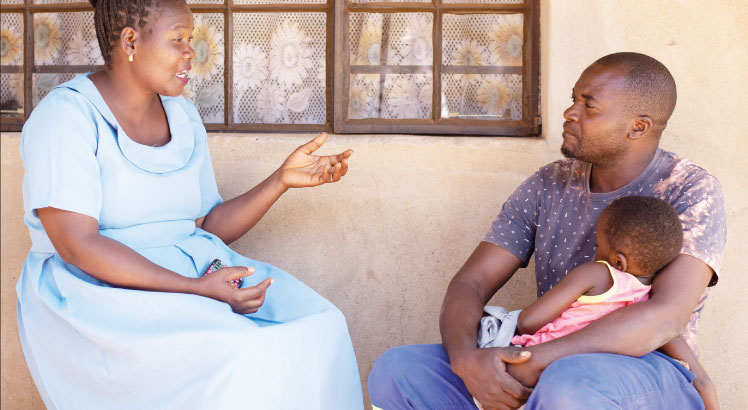Learners bear cholera brunt
Around noon, Machinjiri, Blantyre City’s largest township, transitions into a hustle and bustle despite suffering the most from the deadliest cholera outbreak in Malawi.
Typically, junior learners returning from school are seen buying snacks and drinks from roadside markets while seniors quickly grab their food before afternoon classes. These open food sales are blamed for fuelling cholera transmission in the worst-hit city.
So far, the nationwide cholera outbreak has claimed over 1 760 lives and infected approximately 58 800 patients since it was first detected in March last year.
South Lunzu Health Centre in Machinjiri has recorded 13 deaths, including two students, out of about 600 cases.
“One of the deceased pupils was in Standard Three, and the other was a Form One student. More shockingly, 146 of the confirmed cases were schoolchildren aged six to 19,” states senior health surveillance assistant (HSA) Susan Muyaya. “Schools bear a considerable responsibility to teach children preventive measures and hygiene, including consistently washing hands after using latrines and before eating.”
At the peak of the cholera crisis in January this year, Ministry of Education delayed the opening of schools by two weeks in the hardest-hit cities of Blantyre and Lilongwe.

Machinjiri resident Umali Asibu finds it distressing that a quarter of the confirmed cholera cases were young students like his 19-year-old son, Ishmael, who succumbed to the disease last month.
Asibu lives in a densely populated area near a stream that has turned into a dumping ground. Before the disease could spread to nearby settlements, health workers worked with local leaders to control the outbreak in the locality where it was detected.
“Schools should not only teach children about sanitation and hygiene, but also practice these values, as children are influenced by what they see in the world around them,” says Asibu.
The truck driver laments the poor sanitation he encountered at a school during one of his recent trips.
He recalls: “During a trip to collect dambo sand, I needed to use a toilet and ended up using a filthy one at a public school in Bangwe Township.
“This not only exposes students to cholera, but also highlights the poor sanitation that promotes such preventable diseases. The children use these unsanitary facilities and eat food without washing hands.”
Asibu advocates a ban on the sale of cold, ready-to-eat food in schools to curb the lengthy cholera outbreak now on the wane.
He suspects that his late son contracted cholera germs from a snack known as ‘zibwente,’ made from boiled Irish potatoes coated with baking flour, which he bought on his way from school.
The family’s tragedy occurred one morning when Ishmael began showing symptoms of cholera. Despite initial treatment at a private clinic, his condition deteriorated, and he was admitted to South Lunzu Health Centre. Despite healthcare workers’ efforts, Ishmael succumbed to cholera.
This loss has inspired Asibu to install in-house toilets to safeguard his family, which has been using a neighbour’s pit latrine since their own was destroyed by Cyclone Freddy in March.
He says: “Until it struck my son, I thought cholera was just talk. If today I met the ministers responsible for health and education, I would urge them to unite to make schools safe for children, with or without cholera. We cannot make Malawi cholera-free unless schools are safe and children learn the importance of sanitation and hygiene.”
Unicef Malawi is providing schools with safe water, sanitation, and hygiene with support from various partners. They include the European Civil Protection and Humanitarian Aid Operations, the United Nations Central Emergency Response Fund, the United States Agency for International Development and Bureau for Humanitarian Assistance.
Unicef support includes case area targeted interventions (Cati) to prevent the spread of the disease beyond the locality where the first patient lives or works.
The anticipatory interventions involve disinfecting the homes of confirmed patients, tracing and monitoring potential contacts, and conducting public and door-to-door health talks in affected communities.
During the community dialogue under Cati in Machinjiri Area 5, Asibu and his neighbours received soap, a bucket and water treatment chemicals to help maintain sanitation and hygiene. Community health workers educated the at-risk population about cholera’s dangers and prevention during these public talks.
According to Muyaya, schools should be at the heart of community efforts to eradicate cholera. “Community efforts to end cholera should extend to schools, which are also severely affected by disease outbreaks,” she states.





